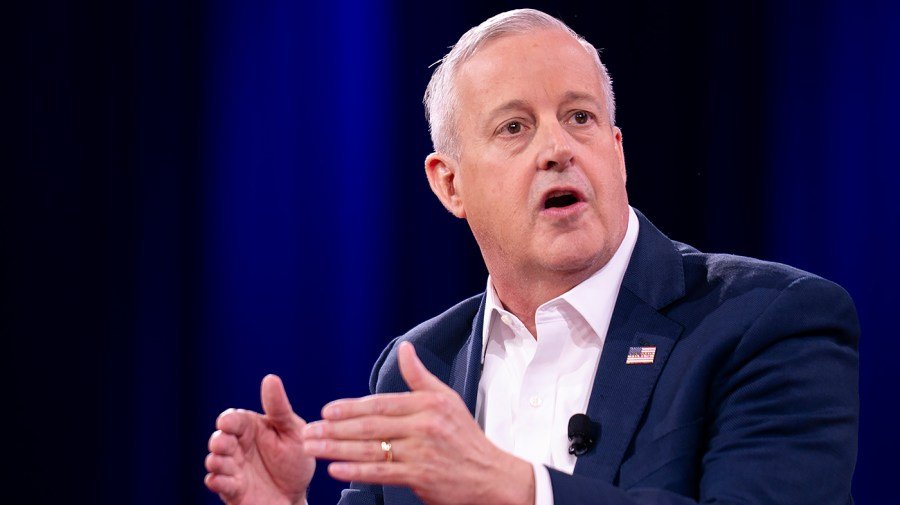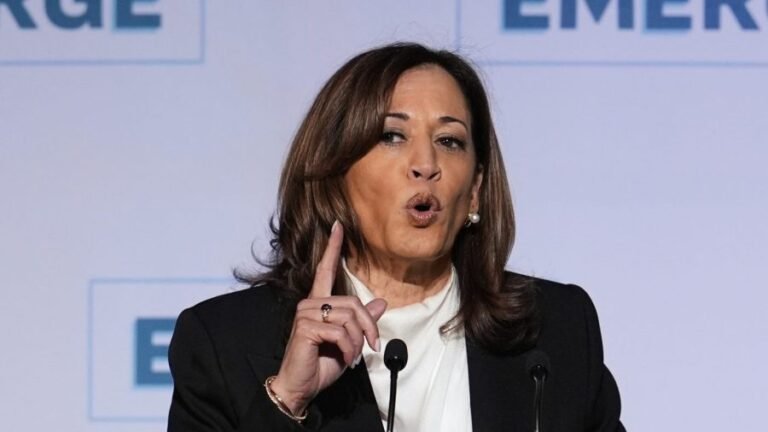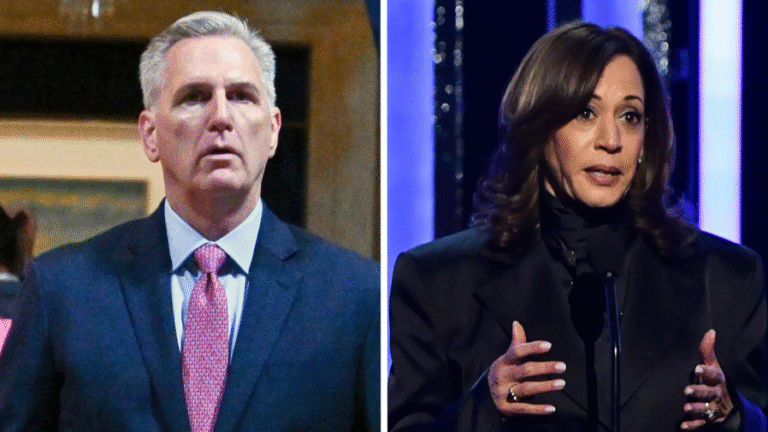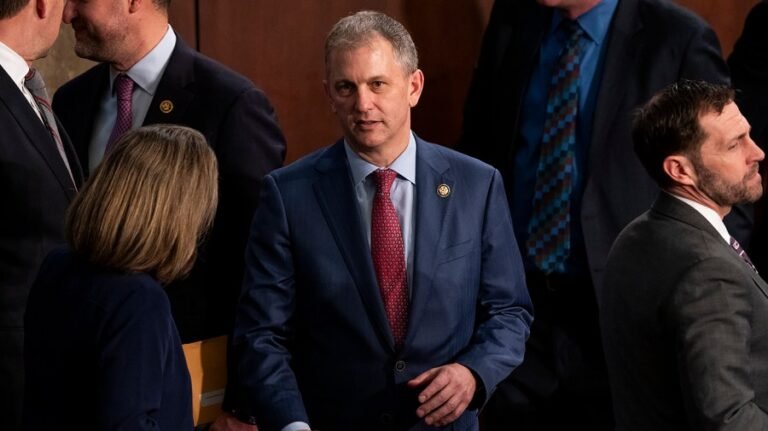
Republican National Committee (RNC) Chair Michael Whatley has formally entered the North Carolina Senate race, setting up a likely face-off against former Gov. Roy Cooper (D) in one of the most competitive contests next year.
“I’m excited to announce my campaign for the U.S. Senate to represent the great state of North Carolina!” Whatley wrote in a post on X shortly before he was expected to deliver remarks. “I am humbled and excited to begin this campaign, and I would be honored to earn your vote, your support, and your prayers. Let’s get to work.”
Whatley was first reported to be planning a run for the seat held by retiring Sen. Thom Tillis (R-N.C.) last week, with critical backing from President Trump. He will be the clear favorite for the Republican nomination.
The president’s daughter-in-law, former RNC Co-Chair Lara Trump, was another possible candidate and appeared to have first right of refusal for the Republican lane, but she ruled out running last Thursday.
Whatley said at his campaign launch event that his campaign will focus on “North Carolina values,” including a strong economy, public safety and the country being respected around the world. He said he would push to eliminate sanctuary cities, keep taxes low and support the police and veterans.
He said he will be the conservative ally in the Senate that Trump needs.
Whatley’s campaign video announcing his run touts Trump’s past praise of him and endorsement of his candidacy.
“Whatley is a strong leader who can get North Carolina back on track, to help families make ends meet, to create jobs, to make our streets safe again,” the narrator states in the video.
Whatley has never run for elected office before, but he has an extensive background in North Carolina politics as a former chief of staff to former Sen. Elizabeth Dole (R-N.C.) and former North Carolina GOP chair. He served in the latter role for almost five years before Trump tapped him to lead the RNC last year ahead of the 2024 presidential election.
Tillis has served two terms but announced last month that he wouldn’t run for a third term, saying he hadn’t been excited about running again and criticizing the “political theatre and partisan gridlock” of Washington. He has been seen as a more moderate member of the Senate GOP Conference and less closely tied to Trump, at times to the president’s chagrin.
Whatley is much more tied to Trump and would be a close ally to him if elected. Republicans have said they had doubts about Tillis’s ability to appeal to some members of Trump’s base if he sought reelection, and they expect a candidate more closely backing Trump to be a more competitive choice.
A few other Republicans have been rumored to be possible candidates, but most of the names have declined to run, and Republicans seem to be quickly coalescing behind Whatley.
Trump said in a Truth Social post last week that Whatley would make “an unbelievable Senator” and praised his work at the RNC, backing Florida state Sen. Joe Gruters (R) to become the national party’s next leader.
Whatley immediately received endorsements from two of the Senate GOP’s top leaders, Senate Majority Leader John Thune (R-S.D.) and Sen. Tim Scott (R-S.C.), the chair of the National Republican Senatorial Committee (NRSC).
Thune said in a statement that Whatley has been “exceptional” leading the RNC and he’s excited to back him for Senate.
“Michael is a strong conservative voice committed to fighting for North Carolina and will be a crucial part of our growing Senate Republican majority,” he said.
Scott said Whatley knows how to win in North Carolina, just like Trump, calling him a “strong America First conservative and a champion” for the state.
“With Michael in the race and running to win, I know we will protect President Trump’s Senate Majority in 2026,” he said in a statement.
A GOP source familiar told The Hill that Scott announced to the Senate Republican Conference that he would endorse Whatley at Tuesday’s policy lunch and asked his colleagues to contribute the maximum amount allowed to Whatley’s campaign. They said Scott also asked them to join a fundraiser for him that the NRSC is hosting in September.
The NRSC also gave the maximum amount allowed, $62,000, directly to Whatley’s campaign and joined the Whatley campaign’s joint fundraising agreement on Wednesday, the source said.
Democrats eying the seat as a key pickup opportunity in 2026 seem to be coalescing around Cooper, a popular former two-term governor seen as the party’s best chance to win the race. Former Rep. Wiley Nickel (D-N.C.), who had been running for the seat, dropped out of the race on Tuesday and endorsed Cooper.
Democrats slammed Whatley as a “D.C. insider” and for his past as a lobbyist for oil and gas companies.
Cooper campaign manager Jeff Allen said Whatley supports policies that are “ripping away” health care from North Carolinians and raising costs for the middle class.
“North Carolinians don’t need a lobbyist as their Senator, and voters will have a clear choice between Whatley’s long career as a Beltway insider against Roy Cooper’s record of putting partisanship aside to get results for North Carolina,” Allen said.
The Democratic Senatorial Campaign Committee (DSCC) accused Whatley of backing the GOP’s “cruel plan to gut health care and shutter rural hospitals” and criticized his support of North Carolina’s 12-week abortion ban.
“Republicans are stuck with Whatley after Senator Tillis retired rather than run on the GOP’s toxic agenda, and North Carolina voters will reject his self-serving politics to send Governor Cooper to the Senate in 2026,” DSCC spokesperson Maeve Coyle said in a statement.
The North Carolina Democratic Party released a video and website targeting Whatley’s record.
But Democrats face a battle as they’ll try to win a Senate race in North Carolina for the first time since 2008. The party has seen much more success in state elections recently, including Cooper’s two victories in 2016 and 2020 even as Trump carried the state in the presidential contests.
This seat, along with Sen. Susan Collins’s (R) in Maine, are viewed the two top pick-up opportunities for Democrats in a midterm environment that they hope will favor them.


